Filter by
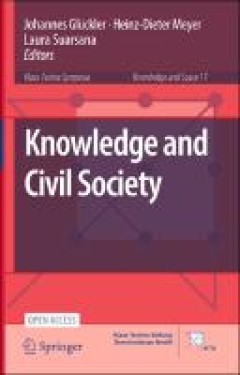
Knlowledge and Civil Society
This open access book focuses on the role of civil society in the creation, dissemination, and interpretation of knowledge in geographical contexts. It offers original, interdisciplinary and counterintuitive perspectives on civil society. The book includes reflections on civil and uncivil society, the role of civil society as a change agent, and on civil society perspectives of undone science. …
- Edition
- -
- ISBN/ISSN
- 9783030711474
- Collation
- 317p. : ill
- Series Title
- -
- Call Number
- 320.05 KNL k
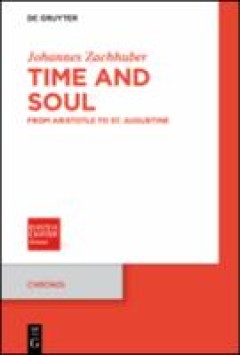
Time And Soul
In Book IV of his Physics, Aristotle asked whether time could exist without a soul that counts it. As a result, philosophers throughout antiquity tackled the problem of subjective time and its relation to the physical time of the cosmos. The present book gives an account of this debate. It analyses the contributions made by Aristotle and his Peripatetic followers but also discusses Neoplatonist…
- Edition
- -
- ISBN/ISSN
- 9783110692723
- Collation
- -
- Series Title
- -
- Call Number
- -
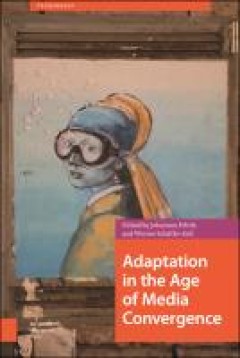
Adaptation in the age of media convergence
This collection considers new phenomena emerging in a convergence environment from the perspective of adaptation studies. The contributions take the most prominent methods within the field to offer reconsiderations of theoretical concepts and practices in participatory culture, transmedia franchises, and new media adaptations. The authors discuss phenomena ranging from mash-ups of novels and Yo…
- Edition
- 10
- ISBN/ISSN
- 9789048534012
- Collation
- 232 p.
- Series Title
- -
- Call Number
- 700.457 FEH a
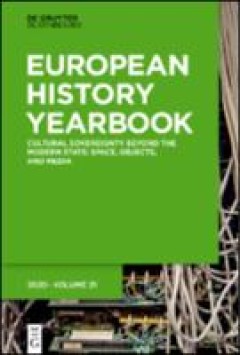
Cultural sovereignty beyond the modern state : space, objects, and media
In the past 25 years or more, political observers have diagnosed a crisis of the sovereign nation state and the erosion of state sovereignty through supranational institutions and the global mobility of capital, goods, information and labour. This edition of the European History Yearbook seeks to use "cultural sovereignty" as a heuristic concept to provide new views on these developments since …
- Edition
- -
- ISBN/ISSN
- 9783110679151
- Collation
- II, 181 p.
- Series Title
- Jahrbuch für Europäische Geschichte / European History Yearbook, Band 21
- Call Number
- 320.15 CUL c
Knowledge for Governance
This open access book focuses on theoretical and empirical intersections between governance, knowledge and space from an interdisciplinary perspective. The contributions elucidate how knowledge is a prerequisite as well as a driver of governance efficacy, and conversely, how governance affects the creation and use of knowledge and innovation in geographical context. Scholars from the fields of …
- Edition
- -
- ISBN/ISSN
- 9783030471507
- Collation
- -
- Series Title
- -
- Call Number
- 320 KNO k
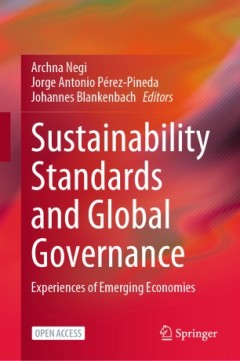
Sustainability standards and global governance : experiences of emerging econ…
This open access book focuses on the issue of sustainability standards from the perspective of both global governance frameworks and emerging economies. It stems from the recognition that the accelerated pace of economic globalization has generated production and consumption patterns that are generating sustainability concerns. Sustainability standards (and regulations) are increasingly being u…
- Edition
- -
- ISBN/ISSN
- 9789811534737
- Collation
- xxvii, 224p. : ill.
- Series Title
- -
- Call Number
- 338.927 SUS s
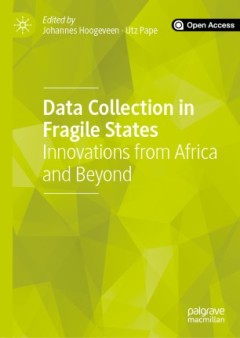
Data collection in fragile states : innovations from Africa and Beyond
Fragile countries face a triple data challenge. Up-to-date information is needed to deal with rapidly changing circumstances and to design adequate responses. Yet, fragile countries are among the most data deprived, while collecting new information in such circumstances is very challenging. This open access book presents innovations in data collection developed with decision makers in fragile c…
- Edition
- -
- ISBN/ISSN
- 9783030251208
- Collation
- xxxi, 243p. : ill.
- Series Title
- -
- Call Number
- 338.90072 DAT d
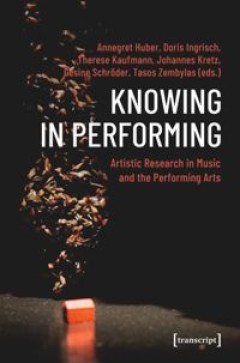
Knowing in performing: artistic research in music and the performing arts
How can performing be transformed into cognition? Knowing in Performing describes dynamic processes of artistic knowledge production in music and the performing arts. Knowing refers to how processual, embodied, and tacit knowledge can be developed from performative practices in music, dance, theatre, and film. By exploring the field of artistic research as a constantly transforming space for pa…
- Edition
- -
- ISBN/ISSN
- 9780429323058
- Collation
- 224 p.
- Series Title
- -
- Call Number
- 790.2 KNO K
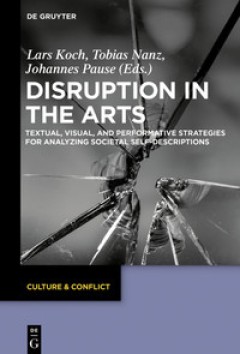
Disruption in the arts : textual, visual, and perfomative strategies for anal…
The volume examines from a comparative perspective the phenomenon of aesthetic disruption within the various arts in contemporary culture. It assumes that the political potential of contemporary art is not solely derived from presenting its audiences with openly political content, but rather from creating a space of perception and interaction using formal means: a space that makes hegemonic str…
- Edition
- -
- ISBN/ISSN
- 9783110580082
- Collation
- XVI, 382 p.
- Series Title
- Culture & Conflict, 11
- Call Number
- 700.103 DIS d
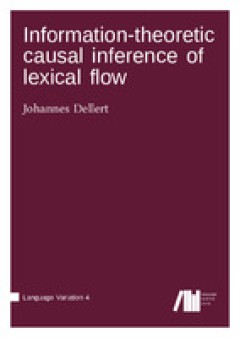
Information-theoretic causal inference of lexical flow
This volume seeks to infer large phylogenetic networks from phonetically encoded lexical data and contribute in this way to the historical study of language varieties. The technical step that enables progress in this case is the use of causal inference algorithms. Sample sets of words from language varieties are preprocessed into automatically inferred cognate sets, and then modeled as informat…
- Edition
- -
- ISBN/ISSN
- 9783961101443
- Collation
- 335 p.; 22 cm.
- Series Title
- Information-theoreticcausal inference oflexical flowJohannes DellertlanguagesciencepressLanguage Variation 4
- Call Number
- 410 DEL i
 Computer Science, Information & General Works
Computer Science, Information & General Works  Philosophy & Psychology
Philosophy & Psychology  Religion
Religion  Social Sciences
Social Sciences  Language
Language  Pure Science
Pure Science  Applied Sciences
Applied Sciences  Art & Recreation
Art & Recreation  Literature
Literature  History & Geography
History & Geography